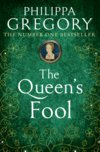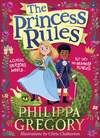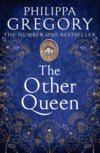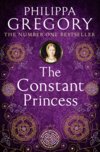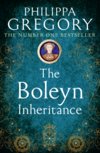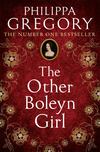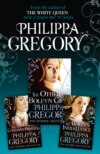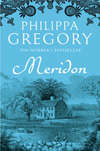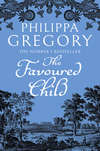Kitabı oku: «The Queen’s Fool», sayfa 4
I nodded and Lord Robert took my hand and, drawing it into the crook of his arm, led me to the Northumberland private quarters. The great doors were guarded by Northumberland men, and as soon as they saw the favoured son of the house they snapped to attention and swung the double doors open. The great hall beyond was deserted, the retainers and the Northumberland court were in the Whitehall garden demonstrating their immense respect to the departing Lady Mary. Lord Robert led me up the grand stairs, through a gallery, to his own rooms. John Dee was seated in the library overlooking an inner garden.
He raised his head as we came into the room. ‘Ah, Hannah Verde.’
It was so odd for me to hear my real name, given in full, that for a moment I did not respond, and then I dipped a little bow. ‘Yes, sir.’
‘She says she will help. But I have not told her what you want,’ Lord Robert said.
Mr Dee rose from the table. ‘I have a special mirror,’ he said. ‘I think it possible that, one with special sight might see rays of light that are not visible to the ordinary eye, d’you understand?’
I did not.
‘Just as we cannot see a sound or a scent, but we know that something is there, I think it possible that the planets and the angels send out rays of light, which we might see if we had the right glass to see them in.’
‘Oh,’ I said blankly.
The tutor broke off with a smile. ‘No matter. You need not understand me. I was only thinking that since you saw the angel Uriel that day, you might see such rays in this mirror.’
‘I don’t mind looking, if Lord Robert wishes it,’ I volunteered.
He nodded. ‘I have it ready. Come in.’ He led the way to an inner chamber. The window was shielded by a thick curtain, all the cold winter light blocked out. A square table was placed before it, the four legs standing on four wax seals. On top of the table was an extraordinary mirror of great beauty, a gold-wrought frame, a bevelled rim, and a golden sheen on the silvering. I stepped up to it and saw myself, reflected in gold, looking not like the boy-girl I was, but like a young woman. For a moment I thought I saw my mother looking back at me, her lovely smile and that gesture when she turned her head. ‘Oh!’ I exclaimed.
‘D’you see anything?’ Dee asked, I could hear the excitement in his voice.
‘I thought I saw my mother,’ I whispered.
He paused for a moment. ‘Can you hear her?’ he asked, his voice shaking.
I waited for a moment, longing with all my heart that she would come to me. But it was only my own face that looked back at me, my eyes enlarged and darkened by unshed tears.
‘She’s not here,’ I said sadly. ‘I would give anything to hear her voice, but I cannot. She has gone from me. I just thought that I saw her for a moment; but it is my own face in the mirror.’
‘I want you to close your eyes,’ he said, ‘and listen carefully to the prayer that I am going to read. When you say “amen” you can open your eyes again and tell me what you see. Are you ready?’
I closed my eyes and I could hear him softly blowing out the few candles illuminating the shadowy room. Behind me I was conscious of Lord Robert sitting quietly on a wooden chair. I wanted only to please him. ‘I am ready,’ I whispered.
It was a long prayer in Latin, I understood it despite Mr Dee’s English pronunciation of the words. It was a prayer for guidance and for the angels to come and protect the work we would do. I whispered ‘amen’ and then I opened my eyes.
The candles were all out. The mirror was a pool of darkness, black reflected in black, I could see nothing.
‘Show us when the king will die,’ Mr Dee whispered from behind me.
I watched, waiting for something to happen, my eyes staring into the blackness.
Nothing.
‘The day of the king’s death,’ Dee whispered again.
In truth, I could see nothing. I waited. Nothing came to me. How could it? I was not some sibyl on a Greek hillside, I was not some saint to whom mysteries were revealed. I stared into the darkness until my eyes grew hot and dry and I knew that far from being a holy fool I was a fool pure and simple, looking at nothing, at a reflection of nothing, while the greatest mind in the kingdom waited for my answer.
I had to say something. There was no going back and telling them that the Sight came to me so seldom and so unheralded that they would have done better to leave me leaning against the wall of my father’s shop. They knew who I was, they had promised me sanctuary from danger. They had bought me and now they expected some benefit for their bargain. I had to say something.
‘July,’ I said quietly, as good a reply as any.
‘Which year?’ Mr Dee prompted me, his voice silky and quiet.
Common sense alone suggested that the young king could not live much longer. ‘This year,’ I said unwillingly.
‘The day?’
‘The sixth,’ I whispered in reply, and I heard the scratch of Lord Robert’s pen as he recorded my mountebank prophecy.
‘Tell the name of the next ruler of England,’ Mr Dee whispered.
I was about to reply ‘Queen Mary’, echoing his own tranced tone. ‘Jane,’ I said simply, surprising myself.
I turned to Lord Robert. ‘I don’t know why I said that. I am most sorry, my lord. I don’t know …’
John Dee quickly grasped my jaw, and turned my head back to the mirror. ‘Don’t talk!’ he ordered. ‘Just tell us what you see.’
‘I see nothing,’ I said helplessly. ‘I am sorry, I am sorry, my lord. I am sorry, I can’t see anything.’
‘The king who comes after Jane,’ he urged me. ‘Look, Hannah. Tell me what you see. Does Jane have a son?’
I would have said ‘yes’ but my tongue would not move in my dry mouth. ‘I cannot see,’ I said humbly. ‘Truly, I cannot see.’
‘A closing prayer,’ Mr Dee said, holding me in my chair by a firm grip on my shoulders. He prayed again in Latin that the work should be blessed, that the visions should be true, and that no-one in this world nor in any other should be harmed by our scrying.
‘Amen,’ I said, more fervently now that I knew this was dangerous work, perhaps even treasonous work.
I felt Lord Robert rise to leave the room and I pulled away from Mr Dee and ran after him.
‘Was it what you wanted?’ I demanded.
‘Did you tell me what you thought I wanted to hear?’
‘No! I spoke as it came to me.’ That was true of the sudden word ‘Jane’, I thought.
He looked sharply at me. ‘Do you promise? Mistress Boy, you are no use to John Dee nor to me if you choose your words to please me. The only way you can please me is by seeing true and saying true.’
‘I am! I did!’ My anxiety to please him and my fear of the mirror were together too much for me and I gave a little sob. ‘I did, my lord.’
His face did not soften. ‘Swear?’
‘Yes.’
He rested a hand on my shoulder. My head throbbed so much that I longed to lean my cheek against the coolness of his sleeve but I thought I should not. I stood stock-still like the boy he called me, to face his scrutiny.
‘Then you have done very well for me,’ he said. ‘That was what I wanted.’
Mr Dee came out of the inner chamber, his face alight. ‘She has the Sight,’ he said. ‘She has it indeed.’
Lord Robert looked at his tutor. ‘Will this make a great difference to your work?’
The older man shrugged. ‘Who knows? We are all children in darkness. But she has the Sight.’ He paused, and then turned to me. ‘Hannah Verde, I must tell you one thing.’
‘Yes, sir?’
‘You have the Sight because you are pure in heart. Please, for yourself and for the gift you bear, refuse any offers of marriage, resist any seduction, keep yourself pure.’
Behind me, Lord Robert gave a snort of amusement.
I felt my colour rise slowly from my neck to my ear lobes to my temples. ‘I have no carnal desires,’ I said in a voice as low as a whisper. I did not dare to look at Lord Robert.
‘Then you will see true,’ John Dee said.
‘But I don’t understand,’ I protested. ‘Who is Jane? It is Lady Mary who will be queen if His Grace dies.’
Lord Robert put his finger on my lips and at once I was silent. ‘Sit down,’ he said and pressed me into a chair. He drew up a stool and sat beside me, his face close to mine. ‘Mistress Boy, you have seen today two things that would have us all hanged if they were known.’
My heart raced with fear. ‘My lord?’
‘Just by looking in the mirror you put us all in danger.’
My hand went to my cheek as if I would wipe away smuts from a fire. ‘My lord?’
‘You must say not a word of this. It is treason to cast the horoscope of a king, and the punishment for treason is death. You cast his horoscope today and you foretold the day of his death. D’you want to see me on the scaffold?’
‘No! I …’
‘Do you want to die yourself?’
‘No!’ I could hear a quaver in my voice. ‘My lord, I am afraid.’
‘Then never say one word of this to anyone. Not even to your father. As to the Jane of the mirror …’
I waited.
‘Just forget all you saw, forget I even asked you to look in the mirror. Forget the mirror, forget the room.’
I looked at him solemnly. ‘I won’t have to do it again?’
‘You will never have to do it again unless you consent. But you must forget it now.’ He gave me his sweet seductive smile. ‘Because I ask it of you,’ he whispered. ‘Because I ask it of you as your friend, I have put my life in your hands.’
I was lost. ‘All right,’ I said.

The court moved to Greenwich Palace in February and it was given out that the king was better. But he never asked for me, nor for Will Somers, he did not ask for music nor for company, nor did he ever come to the great hall for dinner. The physicians, who had been in full-blown attendance with their gowns flapping, waiting in every corner of the court, talking amongst themselves and giving carefully guarded replies to all inquiries, seemed to slip away as the days wore on and there was no news of his recovery, and not even their cheerful predictions about leeches cleansing the young man’s blood and poison carefully administered killing his disease, seemed to ring very true. Lord Robert’s father, the Duke of Northumberland, was all but king in Edward’s place, seated at the right hand of an empty throne at dinner, taking the chair at the head of the council table every week, but telling everyone that the king was well, getting better all the time, looking forward to the finer weather, planning a progress this summer.
I said nothing. I was being paid as a fool to say surprising and impertinent things but I could think of nothing more impertinent and surprising than the truth – that the young king was half-prisoner to his protector, that he was dying without companions or nursing, and that this whole court, every great man in the land, was thinking of the crown and not of the boy; and that it was a great cruelty, to a boy only a little older than me and without a mother or a father to care for him, to be left to die alone. I looked around me at the men who assured each other that the young man of fifteen, coughing his lungs out in hiding, would be fit to take a wife this summer, and I thought that I would be a fool indeed if I did not see that they were a bunch of liars and rogues.
While the young king vomited black bile in his chamber, the men outside quietly helped themselves to the pensions, to the fees from offices, to the rents from monasteries that they closed for piety and then robbed for greed, and no-one said one word against it. I would have been a fool indeed to tell the truth in this court of liars, I would have been as incongruous as an angel in Fleet Street. I kept my head down, I sat near Will Somers at dinner, and I kept silent.
I had new work to do. Lord Robert’s tutor Mr Dee sought me out and asked if I would read with him. His eyes were tired, he said, and my father had sent him some manuscripts that could be more easily deciphered by young sight.
‘I don’t read very well,’ I said cautiously.
He was pacing ahead of me in one of the sunny galleries overlooking the river, but at my words he turned and smiled.
‘You are a very careful young woman,’ he said. ‘And that is wise in these changing times. But you are safe with me and with Lord Robert. I imagine you can read English and Latin fluently, am I right?’
I nodded.
‘And Spanish, of course, and perhaps French?’
I kept my silence. It was obvious that I spoke and read Spanish as my native tongue, and he would guess that I must have picked up some French during our stay in Paris.
Mr Dee came a little closer and bent his head to whisper in my ear. ‘Can you read Greek? I need someone who can read Greek for me.’
If I had been older and wiser I would have denied my knowledge. But I was only fourteen and proud of my abilities. My mother herself had taught me to read Greek and Hebrew, and my Father called me his little scholar, as good as any boy.
‘Yes,’ I said. ‘I can read Greek and Hebrew.’
‘Hebrew?’ he exclaimed, his interest sharpened. ‘Dear God, child, what have you seen in Hebrew? Have you seen the Torah?’
At once I knew I should have said nothing. If I said yes, that I had seen the laws of the Jews and the prayers, then I would have identified myself and my father beyond doubt as Jews and practising Jews at that. I thought of my mother telling me that my vanity would get me into trouble. I had always thought that she meant my love of fine clothes and ribbons for my hair. Now, dressed as a boy in a fool’s livery I had committed the sin of vanity, I had been prideful of my schooling and the punishment could be extreme.
‘Mr Dee …’ I whispered, aghast.
He smiled at me. ‘I guessed you had fled Spain as soon as I saw you,’ he said gently. ‘I guessed you were Conversos. But it was not for me to say. And it is not in Lord Robert’s nature to persecute someone for the faith of their fathers, especially a faith which they have surrendered. You go to church, don’t you? And observe feast days? You believe in Jesus Christ and his mercy?’
‘Oh yes, my lord. Without fail.’ There was no point in telling him that there was no more devout Christian than a Jew trying to be invisible.
Mr Dee paused. ‘As for me, I pray for a time when we are beyond such divisions, beyond them to the truth itself. Some men think that there is neither God nor Allah nor Elohim …’
At his speaking the sacred name of the only God I gave a little gasp of surprise. ‘Mr Dee? Are you one of the Chosen People?’
He shook his head. ‘I believe there is a creator, a great creator of the world, but I do not know his name. I know the names that he is given by man. Why should I prefer one name to another? What I want to know is His Holy Nature, what I want is the help of his angels, what I want to do is to further his work, to make gold from base, to make Holy from Vulgar.’ He broke off. ‘Does any of this mean anything to you?’
I kept my face blank. In my father’s library in Spain there had been books that told of the secrets of the making of the world, and there had been the scholar who had come to read them, and the Jesuit who wanted to know the secrets beyond those of his order.
‘Alchemy?’ I asked, my voice very low.
He nodded. ‘The creator has given us a world full of mysteries,’ he said. ‘But I believe that they will be known to us one day. Now we understand a little, and the church of the Pope, and the church of the king, and the laws of the land all say that we should not question. But I don’t believe that it is the law of God that we should not question. I think that he has made this world as a great and glorious mechanical garden, one that works to its own laws and grows to its own laws and that we will one day come to understand it. Alchemy – the art of change – is how we shall come to understand it, and when we know how things are made, we can make them ourselves, we will have the knowledge of God, we ourselves will be transubstantiated, we shall be angels …’
He broke off. ‘Does your father have many works on alchemy? He showed me only those on religion. Does he have alchemy texts in Hebrew? Will you read them to me?’
‘I only know the permitted books,’ I said cautiously. ‘My father does not keep forbidden books.’ Not even this kind man who trusted me with his own secrets could lure me into speaking the truth. I had been raised in utter secrecy, I would never lose the habit of fear-filled duplicity. ‘I can read Hebrew, but I don’t know the Jewish prayers. My father and I are good Christians. And he has not shown me any books on alchemy, he does not stock them. I am too young to understand books like that. I don’t know that he would want me to read Hebrew to you, sir.’
‘I will ask him and surely he will allow it,’ he said easily. ‘Reading Hebrew is a gift of God, a skill with languages is the sign of a pure heart. Hebrew is the language of the angels, it is the closest we mortals can come to speaking to God. Did you not know that?’
I shook my head.
‘But of course,’ he continued, glowing with enthusiasm. ‘God spoke to Adam and Eve in the Garden of Eden before the Fall and they became the first people of earth. They must have spoken Hebrew, they must have understood God in that language. There is a language beyond Hebrew, which is what God speaks with heavenly beings, and it is that language which I hope to discover. And the way to it must be through Hebrew, through Greek and through Persian.’ He broke off for a moment. ‘You don’t speak or read Persian, do you? Or any of the Arab tongues?’
‘No,’ I said.
‘No matter,’ he replied. ‘You shall come every morning and read with me for an hour and we shall make great progress.’
‘If Lord Robert says I may,’ I temporised.
Mr Dee smiled at me. ‘Young lady, you are going to help me to understand nothing less than the meaning of all things. There is a key to the universe and we are just beginning to grasp at it. There are rules, unchangeable rules, which command the courses of the planets, the tides of the sea, and the affairs of men, and I know, I absolutely know, that all these things are interlinked: the sea, the planets, and the history of man. With God’s grace and with the skill we can muster we will discover these laws and when we know them …’ He paused. ‘We will know everything.’

Spring 1553
I was allowed to go home to my father in April and I took him my wages for the quarter. I went in my old boy’s clothes that he had bought me when we first came to England and found that my wrists poked out at the sleeves and I could not get my growing feet into the shoes. I had to cut out the heels and go slipshod through the city.
‘They will have to put you in gowns soon,’ my father remarked. ‘You are half a woman already. What news of the court?’
‘None,’ I said. ‘Everyone says that the king is growing stronger with the warmer weather.’ I did not add that everyone was speaking a lie.
‘God bless him and keep him,’ my father said piously. He looked at me, as if he would know more. ‘And Lord Robert. Do you see him?’
I felt myself colour. ‘Now and then.’ I could have told him to the very hour and the minute when I had last seen Lord Robert. He had not spoken to me, perhaps he had not even seen me. He had been mounted on his horse, about to go hawking for herons along the mudflats of the river shore. He was wearing a black cape and a black hat with a dark feather pinned to the ribbon with a jet brooch. He had a beautiful hooded falcon on his wrist and he rode with one hand outstretched to keep the bird steady and his other hand holding the curvetting horse, which was pawing the ground in its eagerness. He looked like a prince in a story book, he was laughing. I had watched him as I might have watched a seagull riding the wind blowing up the Thames: as a thing so beautiful that it illuminated my day. I watched him, not a woman desiring a man; but a girl worshipping an icon, something far beyond reach but perfection in every way.
‘There is to be a great wedding,’ I said to fill the pause. ‘Lord Robert’s father has arranged it.’
‘Who is to marry?’ my father asked with a gossip’s curiosity.
I ticked off the three couples on my fingers. ‘Lady Katherine Dudley is to marry Lord Henry Hastings, and the two Grey sisters are to marry Lord Guilford Dudley and Lord Henry Herbert.’
‘And you know them all!’ my father boasted, proud as any parent.
I shook my head. ‘Only the Dudleys,’ I said. ‘And not one of them would know me out of livery. I am a very lowly servant at court, Father.’
He cut a slice of bread for me and one for himself. It was stale bread, yesterday’s loaf. He had a small piece of cheese on one plate. On the other side of the room was a piece of meat, which we would eat later, in defiance of the English way of doing things which was to set all of the dinner, meats, breads, puddings as well, on the table at the same time. I thought however much we might pretend, anyone who strolled into the room now would see that we were trying to eat the right way: dairy and meat separate. Anyone looking at my father’s vellum skin and my dark eyes would know us for Jews. We might say that we were converted, we might attend church as enthusiastically as Lady Elizabeth herself was loudly praised for doing, but anyone would know us for Jews, and if they wanted an excuse to rob or denounce us, they would have it to their hand.
‘Do you not know the Grey sisters?’
‘Hardly at all,’ I said. ‘They are the king’s cousins. They say that Lady Jane does not want to marry, she lives only to study her books. But her mother and her father have beaten her till she agreed.’
My father nodded, the forcible ordering of a daughter was no surprise. ‘And what else?’ he asked. ‘What of Lord Robert’s father, the Duke of Northumberland?’
‘He’s very much disliked.’ I lowered my voice to a whisper. ‘But he is like a king himself. He goes in and out of the king’s bedroom and says that this or that is the king’s own wish. What can anyone do against him?’
‘They took up our neighbour the portrait painter only last week,’ my father remarked. ‘Mr Tuller. They said he was a Catholic and a heretic. Took him off for questioning, and he has not come back. He had copied a picture of Our Lady some years ago, and someone searched a house and found it hidden, with his name signed at the foot.’ My father shook his head. ‘It makes no sense in law,’ he complained. ‘Whatever their conviction, it makes no sense. When he painted the picture it was allowed. Now it is heresy. When he painted the picture it was a work of art. Now it is a crime. The picture has not changed, it is the law which has changed and they apply the law to the years when it did not exist, before it was written. These people are barbarians. They lack all reason.’
We both glanced towards the door. The street was quiet, the door locked.
‘D’you think we should leave?’ I asked, very low. I realised for the first time that now I wanted to stay.
He chewed his bread, thinking. ‘Not yet,’ he said cautiously. ‘Besides, where could we go that was safe? I’d rather be in Protestant England than Catholic France. We are good reformed Christians now. You go to church, don’t you?’
‘Twice, sometimes three times a day,’ I assured him. ‘It’s a very observant court.’
‘I make sure I am seen to go. And I give to charity, and I pay my parish dues. We can do nothing more. We’ve both been baptised. What can any man say against us?’
I said nothing. We both knew that anyone could say anything against anyone. In the countries that had turned the ritual of the church into a burning matter no-one could be sure that they would not offend by the way they prayed, even by which direction they faced when they prayed.
‘If the king falls ill and dies,’ my father whispered, ‘then Lady Mary takes the throne, and she is a Roman Catholic. Will she make the whole country become Roman Catholic again?’
‘Who knows what will happen?’ I asked, thinking of my naming the next heir as ‘Jane’ and Robert Dudley’s lack of surprise. ‘I wouldn’t put a groat wager on Lady Mary coming to the throne. There are bigger players in this game than you and I, Father. And I don’t know what they are planning.’
‘If Lady Mary inherits and the country becomes Roman Catholic again then there are some books I shall have to be rid of,’ my father said anxiously. ‘And we are known as good Lutheran booksellers.’
I put my hand up and rubbed my cheek, as if I would brush smuts away. At once he touched my hand. ‘Don’t do that, querida. Don’t worry. Everyone in the country will have to change, not just us. Everyone will be the same.’
I glanced over to where the Sabbath candle burned under the upended pitcher, its light hidden but its flame burning for our God. ‘But we’re not the same,’ I said simply.

John Dee and I read together every morning like devoted scholars. Mostly he commanded me to read the Bible in Greek and then the same passage in Latin so that he might compare the translations. He was working on the oldest parts of the Bible, trying to unravel the secrets of the real making of the world from the flowery speech. He sat with his head resting in his hand, jotting notes as I wrote, sometimes raising his hand to ask me to pause as a thought struck him. It was easy work for me, I could read without comprehension, and when I did not know how to pronounce a word (and there were many such words) I just spelled it out, and Mr Dee would recognise it. I could not help but like him, he was such a kind and gentle man; and I had a growing admiration for his immense ability. He seemed to me to be a man of almost inspired understanding. When he was alone he read mathematics, he played games with codes and numbers, he created acrostics and riddles of intense complexity. He exchanged letters and theories with the greatest thinkers of Christendom, forever staying just ahead of the Papal Inquisitions, which forbade the very questions that everyone’s work suggested.
He had invented a game of his own that only Lord Robert and he could play, called Chess on Many Floors, for which Mr Dee had invented a chess board on three levels made of thick bevelled glass, where the players could go up and down as well as along. It made a game of such difficulty that he and Lord Robert would play the same round for weeks at a time. Other times he would retreat into his inner study and be silent for all the afternoon or all the morning and I knew that he was gazing in the scrying mirror and trying to see what might exist in the world just beyond our own, the world of the spirits which he knew must be there, but which he glimpsed only occasionally.
In his inner chamber he had a small stone bench, with a little fireplace hollowed out of the stone. He would light a charcoal fire, and suspend above it great glass vessels filled with herbs in water. A complicated network of glass tubes would drain liquor from one bottle to the other and then would stand and cool. Sometimes he would be in there for hours and all I would hear, as I copied page after page of numbers for him, was the quiet clink of one flask against another as he poured liquid into a vessel, or the hiss of the bellows as he heated the little fire.
In the afternoons Will Somers and I practised our sword fighting, leaving aside the comical tricks and concentrating on proper fighting, until he told me that I was a commendable swordsman for a fool, and that if I ever found myself in trouble I might use a sword to fight my way out: ‘Like a proud hidalgo’, he said.
Although I was glad to learn a useful skill, we thought that the lessons would have been for nothing since the king continued to be so sick; until in May we were commanded to the great wedding feasts at Durham House in the Strand. The duke wanted a memorable wedding for his family and Will and I were part of an elaborate dinner entertainment.
‘You would think it a royal wedding,’ Will said slyly to me.
‘How, royal?’ I asked.
He put his finger to his lips. ‘Jane’s mother, Frances Brandon, is King Henry’s niece, the daughter of his sister. Jane and Katherine are royal cousins.’
‘Yes,’ I said. ‘And so?’
‘And Jane is to marry a Dudley.’
‘Yes,’ I said, following this not at all.
‘Who more royal than the Dudleys?’ he demanded.
‘The king’s sisters,’ I pointed out. ‘Jane’s own mother. And others too.’
‘Not if you measure in terms of desire,’ Will explained sweetly. ‘In terms of desire there is no-one more royal than the duke. He loves the throne so much he practically tastes it. He almost gobbles it up.’
Will had gone too far for me. I got to my feet. ‘I don’t understand,’ I said flatly.
‘You are a wise child to be so dense,’ he said and patted my head.

Our sword fight was preceded by dancers and a masque and followed by jugglers, and we acquitted ourselves well. The guests roared with laughter at Will’s tumbles and my triumphant skill, and the contrast between our looks: Will so tall and gangling, thrusting his sword wildly this way and that; and me, neat and determined, dancing around him and stabbing with my little sword, and parrying his blows.
The chief bride was as white as the pearls embroidered on her gold gown. Her bridegroom sat closer to his mother than to his new bride and neither bride nor groom spoke so much as one word to each other. Jane’s sister had been married to her betrothed in the same ceremony and she and he toasted each other and drank amorously from the same loving cup. But when the shout went up for a toast for Jane and Guilford, I could see that it cost Lady Jane an effort to raise her golden goblet to her new husband. Her eyes were red and raw, and the shadows under her eyes were dark with fatigue; there were marks on either side of her neck that looked like thumbprints. It looked very much as if someone had shaken the bride by the neck till she agreed to take her vows. She barely touched the bridal ale with her lips, I did not see her swallow.
